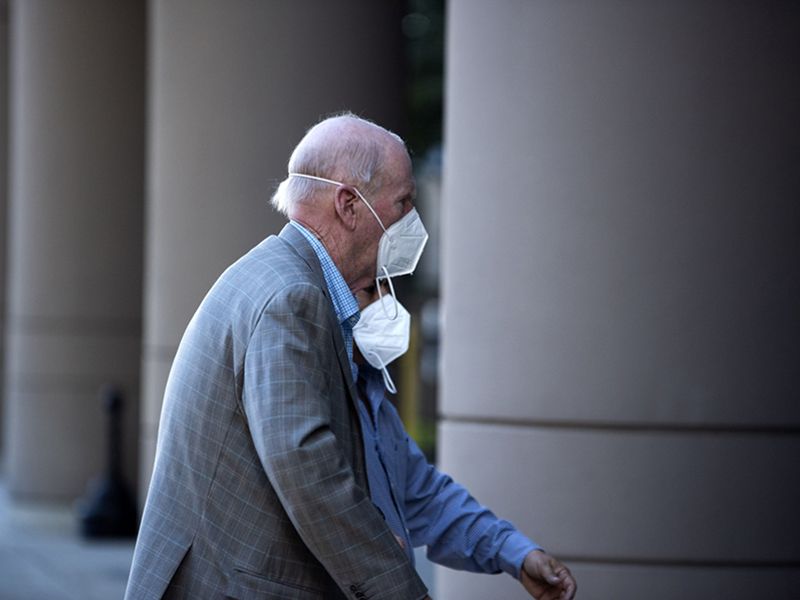
HOUSTON — A medical expert witness for Bob Brockman’s defense testified Monday that he believes the former Reynolds and Reynolds Co. CEO has dementia that “negatively affects his ability to assist his lawyers in his own defense.”
Dr. Thomas Guilmette, a psychologist and professor at Providence College in Rhode Island, testified on the sixth day of testimony in a competency hearing to determine whether Brockman, 80, can stand trial on charges of tax evasion and wire fraud.
“Due to the nature of his cognitive impairments, I believe he would have significant difficulty being able to recall past events accurately, review documents and provide context to his attorneys,” Guilmette testified in a Houston courtroom during questioning from Brockman lawyer James Loonam. “I think he would have difficulty understanding the complexities of the case, the strategies of the case.”
Guilmette’s findings contrast with those last week from medical experts retained by the government, two of whom said that they concluded Brockman was competent to stand trial. All three of the government’s medical experts testified that they believed Brockman exaggerated the extent of his symptoms.
Guilmette testified Monday that he evaluated Brockman in July and October this year and believed he is impaired in such areas as attention, mental processing speed, memory, problem-solving and judgment. Brockman’s symptoms are “most consistent with Parkinson’s disease dementia,” he testified, adding that “it certainly is quite possible” that he also has Alzheimer’s disease.
U.S. District Judge George Hanks Jr. has heard testimony since Nov. 15 on whether Brockman can assist in his defense against 39 federal counts, including tax evasion, wire fraud, money laundering and evidence tampering. Brockman has pleaded not guilty. His lawyers maintain that he has progressive and incurable dementia that affects his ability to process and recall information, including that which his attorneys share with him.
Prosecutors contend that he is faking symptoms to avoid prosecution and that he has both the motivation and the capacity to do so. They say Brockman continued to lead Dayton, Ohio-based Reynolds and Reynolds until after he was indicted in October 2020 and was able to recall past events and speak about complex topics in two separate civil depositions in 2019.
Guilmette and Dr. Robert Denney, a neuropsychologist who has conducted competency examinations of criminal defendants for the Federal Bureau of Prisons and was an expert witness for prosecutors in this case, both testified that they gave a series of tests to Brockman to measure his cognitive abilities and whether he was engaging with the tasks, the latter of which could suggest exaggeration, according to testimony provided during the competency hearing.
Denney testified last week that Brockman failed multiple so-called validity tests that assess such effort and engagement, which he said indicates exaggeration and that the cognitive test data is not a true measure of Brockman’s genuine abilities. But Guilmette testified that he and Denney disagreed on their interpretation of the results.
During cross-examination, prosecutors challenged Guilmette’s analysis of Brockman’s validity test results and questioned him about why he did not factor in evidence from depositions and speeches Brockman gave in 2019 as part of his reports on competency.
Guilmette testified that those examples happened two years before he evaluated Brockman. Earlier, he testified under questioning by defense lawyers that Brockman was able to draw on deep, long-term knowledge of the topics during the depositions and “absolutely not” could deliver the same performance today.